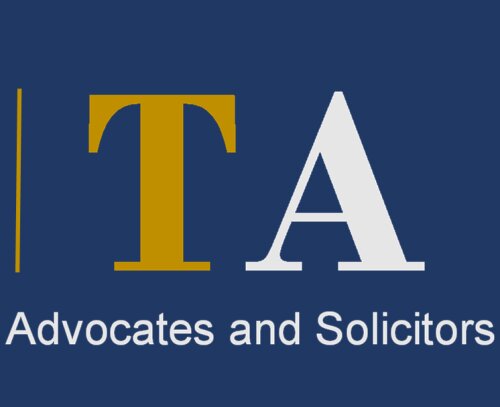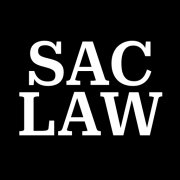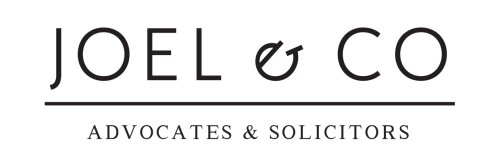Best Sanctions & Export Controls Lawyers in Petaling Jaya
Share your needs with us, get contacted by law firms.
Free. Takes 2 min.
List of the best lawyers in Petaling Jaya, Malaysia
About Sanctions & Export Controls Law in Petaling Jaya, Malaysia
Sanctions and export controls refer to the legal regulations that restrict or prohibit certain types of trade, financial transactions, and movement of goods, technologies, and services to other countries or specific entities. In Petaling Jaya, Malaysia, these laws are designed to comply with both national interests and international obligations. They aim to maintain national security, support foreign policy objectives, and ensure that sensitive goods or technology are not misused or diverted to undesirable end-users or destinations.
Businesses and individuals operating in Petaling Jaya must navigate rules on exporting controlled items, dealing with sanctioned parties, and ensuring compliance with relevant Malaysian statutes and international agreements. Failing to comply with these regulations can result in severe penalties, including fines, imprisonment, and loss of business licenses.
Why You May Need a Lawyer
Legal issues surrounding sanctions and export controls are complex and can have significant consequences for companies and individuals. You may require legal assistance in situations such as:
- Exporting goods or technologies internationally and needing clarity on licensing requirements
- Discovering your business is listed on a sanctions list or is dealing with a sanctioned party
- Investigating or responding to enforcement actions or government inquiries related to trade
- Creating or updating internal compliance programs to meet regulatory standards
- Due diligence prior to mergers, acquisitions, or business partnerships
- Self-disclosure of potential violations to the authorities
A lawyer can advise on your obligations, help obtain necessary permits, represent you in dealings with regulators, and reduce the risks of non-compliance.
Local Laws Overview
In Malaysia, several laws and regulatory bodies govern sanctions and export controls, all of which are applicable to residents and businesses in Petaling Jaya.
Key statutes include the Strategic Trade Act 2010, which regulates the export, transit, and brokering of strategic items related to weapons and technology with potential military use. The law requires certain exports to be licensed and penalizes unlicensed activities. The Customs Act 1967 and the Anti-Money Laundering, Anti-Terrorism Financing and Proceeds of Unlawful Activities Act 2001 also play a role in overseeing and controlling the flow of goods and financial assets.
Malaysia’s obligations under United Nations Security Council resolutions are implemented by the Ministry of International Trade and Industry (MITI) and the Royal Malaysian Customs Department. These agencies manage the lists of prohibited parties and goods, issue required permits, and investigate breaches of the law.
Businesses in Petaling Jaya must ensure that their activities do not violate these rules, intentionally or otherwise, and undertake necessary due diligence when dealing with international partners.
Frequently Asked Questions
What are sanctions and export controls?
Sanctions are legal measures that restrict trade or financial transactions with specific countries or entities. Export controls are regulations that limit the movement of sensitive goods, technologies, or services across national borders.
Who regulates export controls and sanctions in Malaysia?
The main regulatory authorities are the Ministry of International Trade and Industry (MITI) and the Royal Malaysian Customs Department. Other agencies may also be involved depending on the specific matter.
Do I need a license to export goods from Petaling Jaya?
Some goods and technologies, especially those with potential military or dual-use applications, require a license under the Strategic Trade Act 2010. It is important to check if your products fall under regulated categories.
What are the penalties for violating export controls?
Penalties for non-compliance can include heavy fines, imprisonment, revocation of business licenses, confiscation of goods, and reputational damage.
How can I find out if a person or company is on a sanctions list?
Sanctions lists are published and updated by MITI and other relevant authorities. Legal counsel or compliance professionals can help you conduct proper due diligence.
What should I do if I am accused of violating export controls?
Contact an experienced sanctions and export controls lawyer immediately. They can advise you on the next steps, represent you in investigations, and help mitigate penalties.
Are there any international obligations that apply in Malaysia?
Yes, Malaysia implements United Nations Security Council sanctions, and companies must comply with these as integrated into local law.
What types of goods are typically subject to export controls?
Controlled goods include military equipment, dual-use technologies (such as chemicals, electronics, aerospace components), and items that could be used for weapons of mass destruction.
Can personal items be subject to export controls?
While most personal effects are exempt, certain controlled items, especially those with advanced technology or security implications, may require licenses even for personal export.
How do I ensure my business is compliant?
Establish a clear internal compliance program, train employees, consult with legal experts, and regularly review the latest regulatory updates.
Additional Resources
Malaysian businesses and individuals seeking more information on sanctions and export controls can consult the following:
- Ministry of International Trade and Industry (MITI) - Strategic Trade Secretariat
- Royal Malaysian Customs Department
- Malaysian Investment Development Authority (MIDA)
- Relevant industry associations and chambers of commerce
- Legal practitioners with expertise in international trade, sanctions, and export controls
Next Steps
If you require legal advice regarding sanctions and export controls in Petaling Jaya, consider taking the following steps:
- Identify your specific needs, such as compliance review, licensing, or responding to enforcement actions
- Gather all relevant documents and information about your business activities
- Consult with a qualified lawyer who specializes in sanctions and export controls law in Malaysia
- Implement recommended compliance measures and maintain regular contact with your legal advisor
- Monitor updates to regulations and ensure ongoing compliance training for your staff
Taking early legal advice can significantly reduce the risk of costly penalties or business disruptions, and will help you operate confidently within the bounds of Malaysian law.
Lawzana helps you find the best lawyers and law firms in Petaling Jaya through a curated and pre-screened list of qualified legal professionals. Our platform offers rankings and detailed profiles of attorneys and law firms, allowing you to compare based on practice areas, including Sanctions & Export Controls, experience, and client feedback.
Each profile includes a description of the firm's areas of practice, client reviews, team members and partners, year of establishment, spoken languages, office locations, contact information, social media presence, and any published articles or resources. Most firms on our platform speak English and are experienced in both local and international legal matters.
Get a quote from top-rated law firms in Petaling Jaya, Malaysia — quickly, securely, and without unnecessary hassle.
Disclaimer:
The information provided on this page is for general informational purposes only and does not constitute legal advice. While we strive to ensure the accuracy and relevance of the content, legal information may change over time, and interpretations of the law can vary. You should always consult with a qualified legal professional for advice specific to your situation.
We disclaim all liability for actions taken or not taken based on the content of this page. If you believe any information is incorrect or outdated, please contact us, and we will review and update it where appropriate.















